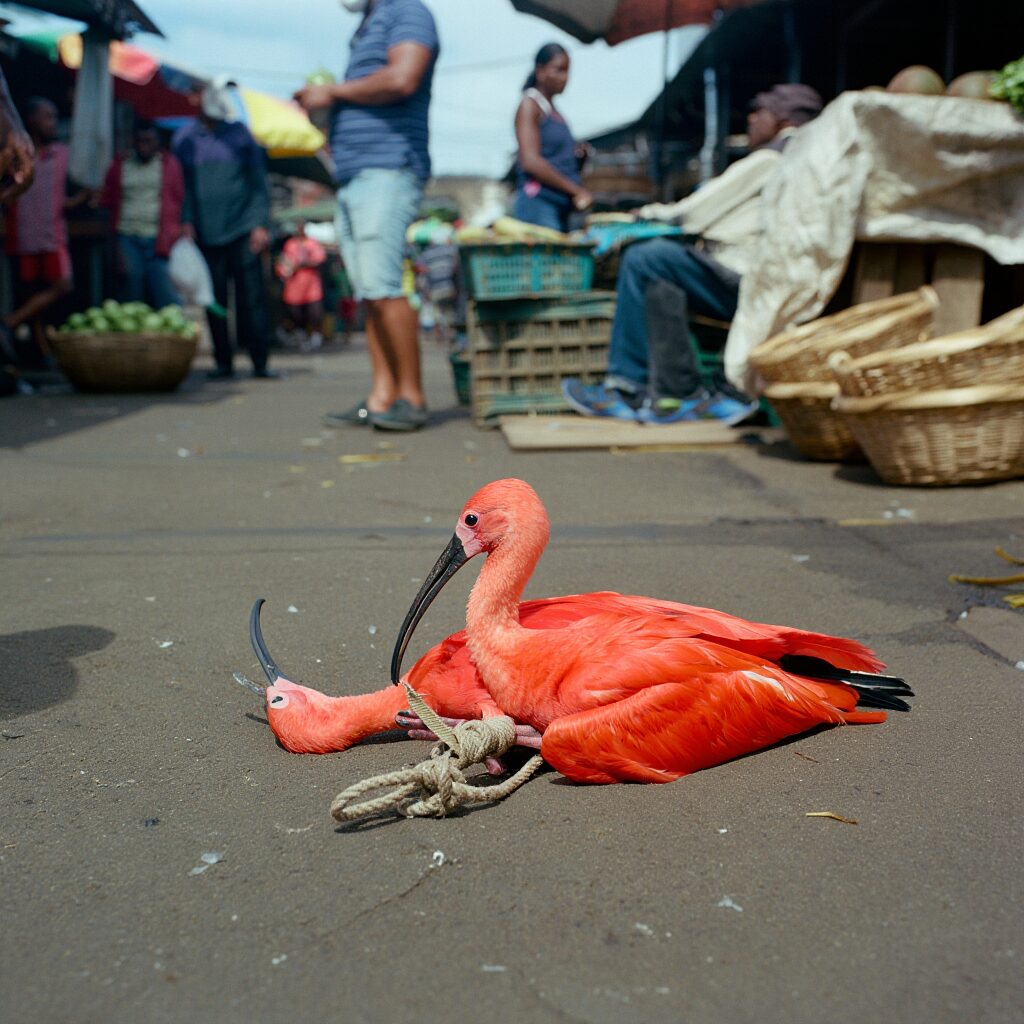In Trinidad’s Caroni Swamp, the evening sky turns into a painting of fire. Thousands of Scarlet Ibises (Eudocimus ruber), glowing crimson from their crab-rich diet, rise from the mangroves in a spectacular wave before settling for the night. For many, this sight is one of the island’s greatest natural wonders — a display so striking that the Scarlet Ibis has been crowned one of Trinidad’s national birds, proudly featured on the country’s coat of arms.
But behind the beauty lies a darker reality.
Despite being protected by law, Scarlet Ibises are still illegally hunted, killed, and sold as bush meat. In some rural communities, eating the ibis is considered a long-standing tradition — a dish once reserved for special occasions. Old recipes still circulate, passed down like family heirlooms, keeping the demand alive even as the species struggles to survive.
Poachers often target the birds at their most vulnerable: during roosting hours, when they gather in great numbers in the mangroves. Hunters move quietly through the swamp at dusk, armed with shotguns or nets, killing multiple birds in a single night. The meat, once cooked, turns a deep, rich red — prized by some for its flavor and “heritage” value.
The sale is lucrative. On the black market, ibis meat can fetch a high price, and in certain hidden food stalls, it’s offered discreetly to those “in the know.” For law enforcement and wildlife wardens, this makes protection an uphill battle — the swamps are vast, the poachers elusive, and cultural ties to the practice deeply rooted.
The impact is devastating. Each adult killed means not only the loss of a breeder but also the loss of future generations. Entire flocks have been reduced in certain areas, and conservationists warn that without stronger enforcement, the Scarlet Ibis could vanish from Trinidad’s skies within our lifetime.
This is more than just a wildlife issue — it’s a cultural crossroads. The Scarlet Ibis is both a culinary tradition for some and a living symbol of the nation for all. The question facing Trinidad is whether tradition should come at the cost of extinction.
If Trinidad’s people choose to protect it, the Scarlet Ibis could continue to set the swamps aflame for centuries to come. But if the killing continues, the brilliant red of the evening sky might fade — leaving only stories of a bird that once painted the horizon.
